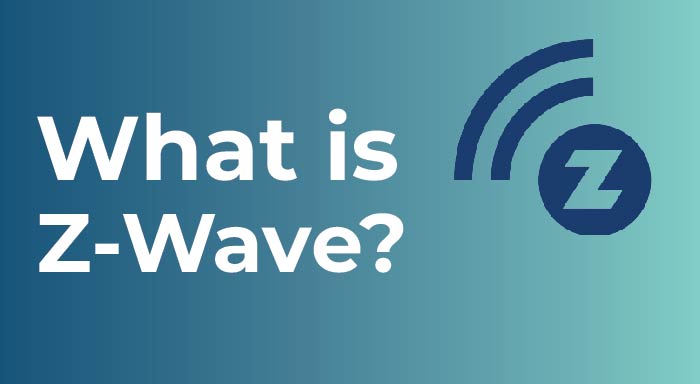The digital transformation of various organizations is happening at an accelerated pace. In such a fast-paced digital landscape, the Internet of Things (IoT) has established its presence as a revolutionary technology, tethering digital and physical worlds in an unprecedented manner. IoT has allowed our world to become more connected than ever, driving innovation across various industries and domains. Thus, the widespread adoption of IoT technology has created lucrative career paths for students and professionals. The career opportunities in IoT appeal to individuals who have a natural passion toward technology and a zeal to impact the future.
If you want to develop a career in IoT, you could not be at a better place. In this blog, you will learn everything ranging from IoT basics, job opportunities, prerequisites, and salary prospects.
What Is IoT?
The term IoT (Internet of Things) refers to an advanced technology involving strong interconnectivity between computers, devices, vehicles, and appliances. IoT empowers devices to seamlessly collect, share, and exchange data over the network. Using this smart interconnectivity, the IoT devices become capable of interacting with one another, performing complex tasks, and delivering data-driven insights to the user.
Mainly, technology is used in industries to elevate the convenience, efficiency, and productivity of organizations. It plays a crucial role across mainstream industries like manufacturing, healthcare, transportation, agriculture, and smart cities. One of its major use cases of IoT lies in home automation. It can connect to numerous home IoT devices like thermostats, lights, and security systems. Then, it creates an environment for the users to improve security, track energy consumption, and boost security.
The far-reaching use cases of IoT has created a plethora of job opportunities for engineers, developers, data scientists, cybersecurity analysts, etc.
Career Opportunities in IoT: Job Opportunities You Must Know
IoT has accelerated the business transformation of IoT and has greatly improved the quality of life. With 20 billion IoT devices, $1.3 trillion market value, and 400+ active IoT platforms in existence, the career opportunities in IoT are only going to grow. Let us learn about the major career opportunities in the domain of IoT we need to know-
Data Analytics- Internet of Things involves the collection of huge volumes of data, which is sometimes disorganized and does not make any sense. The job of a professional involved in data analytics is to organize and make sense of this data. The role of a data analytics professional is very important in industries and requires profound understanding of statistics.
Essentially, the professional must be able to find relationship between data. The data analytics professional must also know how to present insights from the data in an engaging and graphical manner. Furthermore, students must have knowledge of programming languages like SAS, R, and Python. In Python, essentially, it is important to be familiar with libraries like Pandas, NumPy, etc. A data analytics professional who has knowledge of all these skillsets is a great asset for an organization.
Network Architect- In the world of IoT, the setup of hardware to implement IoT solutions can get increasingly complex. The complexity emerges from large sensors and wires connected to various ports and peripherals. Now, should a fault occur in any of these connections, the entire machinery can come to a halt. Therefore, to streamline this connection, an IoT environment needs the services of a Network Architect.
Professionals with specialization in networking and networking setups can make sure that all these connections are operating well. The network architecture must be without any kind of wiring problems and must efficiently follow the network architecture. In simple terms, employees must have proficiency in designing effective architecture. Network architect is one of the most popular career opportunities in IoT.
IoT Engineer- IoT Engineers are important professionals in the industry responsible for designing and developing IoT systems and gadgets. Essentially, they work on designing and creating software components required for overall communication and disruption-free connection between devices.
Starting from ideation to all the way to implementation, IoT engineers must work hand in hand with other professionals to bring these IoT devices to life. To be able to develop powerful and scalable IoT platforms, IoT engineers must have expertise in connectivity protocols, firmware development, and hardware design. Collaborating with multidisciplinary teams, IoT engineers make sure that IoT solutions meet performance needs, fulfill compliant standards, and render seamless user experience.
Data Science- Since, majority of IoT functionalities revolve around collecting and managing data from the interlinked devices, the role of data scientists is crucial. They leverage advanced concepts like machine learning algorithms and sophisticated analytics methods to look for trends, patterns, and correlations in the IoT datasets. They work in collaboration with industry experts to develop predictive models, data optimization techniques, and anomaly detection algorithms.
Data Scientists must have a variety of skill sets to perform their tasks well. They must have knowledge of AI, machine learning, programming languages like Python or R. Apart from that, it is also crucial for them to have domain knowledge of areas such as predictive maintenance, sensor data analysis, and smart grid optimization.
Product Manager- Every IoT project needs a project manager who can guide the development of IoT projects from ideation to commercialization. They create the product strategy, establish priorities for features, and effectively streamline the product development process. They also lead market research, launch optimization, and post launch optimization.
Having a deep knowledge of customer requirements and market trends, product managers collaborate with cross-functional teams. They then use their domain expertise and market insights to create innovative IoT solutions. They target problems that customers face in reality and resolve those problems with IoT solutions. The job of a product manager revolves around creating a roadmap, determining milestones, and overseeing products.
To get career opportunities in IoT as a product manager, professionals must have practical experience and deep knowledge about the industry standards.
Cybersecurity Expert- An IoT environment can get vulnerable to unauthorized access, data breaches, malware and other cybersecurity threats. An IoT ecosystem needs a cybersecurity expert to ensure protection of data, devices, and infrastructure. The job of cybersecurity experts is to find security anomalies and strengthen security levels. They carry out complete vulnerability assessments in platforms and create mitigation strategies. They also work toward enhancing the robustness, security fortification, and resilience of the IoT solution.
It is important for a cybersecurity expert to have skill set in cryptography, network security principles, intrusion detection systems. Additionally, such experts must also know best practices for deployment of IoT solutions and must have practical skills in security assessment tools and techniques.
Skills Needed for Lucrative Career Opportunities in IoT
To excel in the field of Internet of Things, all professionals must have a range of technical and soft skills. To ace IoT interview questions, students must a strong proficiency in all these areas:
Technical Proficiency- To survive in the IoT industry, knowledge of various programming languages is a must. Essentially, it is necessary to have skills in prominent programming languages like C, Python, JavaScript, or Java. Knowledge of these programming languages is required both in the development and deployment of IoT solutions. Proficiency in developing scalable and efficient codes is vital for developing and deploying high-performing IoT solutions.
IoT professionals must also boost their competency by learning about various IoT platforms. Basically, it is necessary to learn about Azure IoT, AWS IoT, Google Cloud IoT, etc. Furthermore, knowledge of cloud computing solutions can help IoT developers to make the most of cloud infrastructure for processing, storage, and analytics.
Additionally, knowledge of IoT fundamentals, IoT gateways, and protocols like XMPP protocol in IoT is necessary. Let us explore this further in the next section.
Knowledge of IoT- Internet of Things is a vast concept with various terminologies and key areas. To be successful in this field, it is important for professionals to understand the foundations of IoT, software, hardware, and networking concepts. Students must focus on learning core concepts of IoT like definition of IoT, the history of IoT, advantages of IoT, applications of IoT, etc. Additionally, learning about IoT architecture, conceptual framework of IoT as well as logical and physical designs of IoT is imperative.
Data Analysis- One of the most important aspects of an IoT environment is to interpret data collected from IoT devices. Interpreting this data yields valuable insights that drive smarter decision making. Thus, knowledge of data analysis is of paramount importance. Professionals must enhance their analytical skills and recognize trends, patterns, and anomalies from the data sets. They must recognize the data points that can help in enhancing system performance and forecasting failures.
In addition, professionals can also do a few courses to imbibe skill sets in data visualization platforms. Learning tools like Power BI, Tableau, Matplotlib, etc., can expand your career opportunities in IoT. If you have appropriate knowledge of numerous visualization techniques, you can also make investors or stakeholders better understand the value of your IoT solutions and communicate key insights.
Collaboration and Communication- Soft skills like teamwork and communication skills are also vital for success in this domain. Strong written and verbal communication is imperative to elucidate requirements, ideas, findings, and technical concepts to a wider audience. Good communication skills prove to be the difference between a strongly coordinated cross-functional team and a chaotic project.
Additionally, success in any IoT project stems from strong collaboration. IoT developers must be able to help each other, combine knowledge of everyone in the team, and collectively resolve conflicts. Communication skills come in handy in a dynamic IoT environment where there is a strong focus on innovation, project delivery, and collective problem-solving.
What Are the Salary Prospects in IoT?
In North American countries like US and Canada, the demand for a skilled IoT developer is very high. Therefore, naturally, prospects of positional and remunerative growth are in the higher ranges. Essentially, a fresher IoT developer can expect to earn between $60,000 to $80,000 per year. It is important to keep note of the fact that the salary prospects improve with experience, skill sets, role, etc. An experienced IoT developer with diverse skill sets can expect to earn a salary in higher ranges, i.e., typically above $100,000. Salary prospects for specialized professionals like security specialists and IoT architects can be even higher.
Conclusion
In the technology-driven world, the role of the Internet of Things is multifaceted and vast. From connecting our smartwatches, TVs, to large-scale industry machinery, IoT proves to be helpful everywhere. Furthermore, its purview spans multiple industries like agriculture, healthcare, home automation, etc. Though this blog focuses only on the fundamentals related to career opportunities in IoT, professionals are advised to dig deeper. For example, learning about real life use cases like IoT remote monitoring can expand your knowledge on the real-life significance of the technology.
Check out our IoT categories to find more blogs on IoT and start improving your knowledge today!








